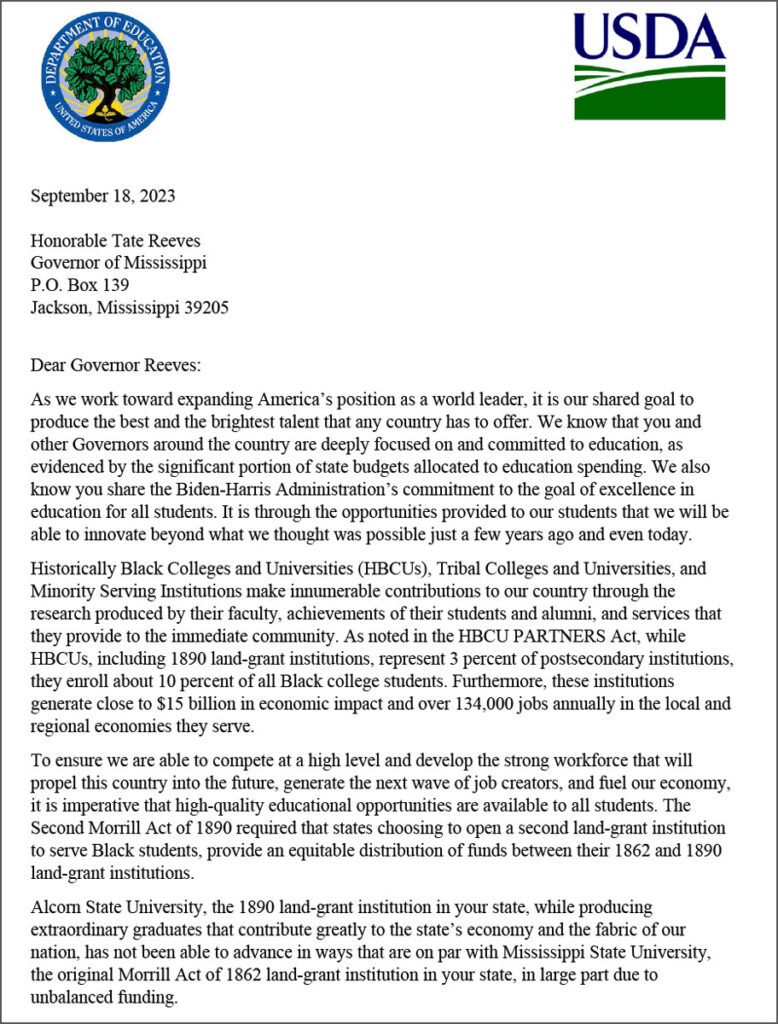Historically Black colleges and universities have been at the heart of higher education in the United States. This resulted from their origins after slavery and subsequent segregation era, which negatively affected Black people. Nonetheless, HBCUs have had a long period of underinvestment, despite their extensive legacy and importance to society.
The revelation in September 2023 that Black land-grant universities have been shortchanged $13 billion over the past three decades and the current controversy surrounding Tennessee State University—with a $2.1 billion funding gap by the state—starkly illuminates the urgent need to finally address this systemic injustice. Addressing underfunding at HBCUs will ensure educational equity and enhance social progress across the nation.
Level the Playing Field For HBCU Students
HBCUs serve as critical learning centers for African American students and other marginalized populations. When these institutions lack sufficient resources, they are unable to provide the same quality of academic programs, support services and facilities as those of their white counterparts.
Let us consider outdated laboratories that hinder studies in the sciences; insufficient student counseling that reduces mental-health help among learners; and aging dorms that create an unfit living atmosphere. This maintains the vicious circle of systemic disadvantage that restricts access to top-notch education and its transformative possibilities. When state leaders ensure equitable funding for HBCUs, we level the playing field, empowering students from diverse backgrounds to unleash their full potential and overcome all barriers on their way to success.

HBCUs are also proven engines of social and economic progress. These same institutions educate a significant number of Black STEM graduates, filling gaps associated with high-demand fields such as healthcare and technology. Moreover, they usually constitute the mainstays of economies, generating employment opportunities, stimulating economic activity and providing avenues for upward mobility.
Take the case of North Carolina A&T State University, where research centers foster entrepreneurship within the local community. Without adequate funding flowing into HBCU coffers, society pays the price in terms of lost potential from talented students who could have made a difference, but never had the opportunity, stifling innovation and leading to those socio-economic disparities that pull our country back. Properly financing HBCUs would unlock their potential as vehicles toward progress, leaving behind more just societies with equal opportunities for everyone.
While some states have cited reasons such as limited budgets, smaller enrollments, or obsolescent notions about HBCUs as reasons for not fully funding them like other state colleges and universities, historical discrimination remains at the core. They were established as a result of the segregation period, during which African Americans were denied admission into existing land-grant colleges.
Many states ignored the Second Morrill Act of 1890, which required equal funding for HBCU land grants. However, it is important to note that even with such federal requirements, some states have never matched their one-to-one funding obligations towards these institutions, as stipulated in the letter from U.S. Secretary of Education Miguel Cardona and Tom Vilsack, U.S. Secretary of Agriculture. Ongoing lawsuits on discriminatory underfunding, like the $577-million settlement for Maryland’s HBCUs, attest to deep-seated inequalities that still persist today.
The gross underfunding of HBCUs is a glaring and inexcusable issue. National organizations, educational advocates and citizens alike must rally to address this inequity. It is imperative that we recognize HBCUs not only as crucibles of Black excellence, but as foundational institutions within American higher education. Their historic underfunding is not merely an oversight; it is a reflection of persistent racial disparities that undermine our collective progress.
To correct this anomaly, we need to adopt a multi-faceted approach. First, federal and state policymakers must ensure equitable funding for HBCUs, recognizing their unique roles and contributions. Second, national organizations must leverage their platforms to advocate for these changes, bringing the issue into the national discourse. Finally, it is essential for all of us to support HBCUs, understanding that their success is integral to the success of our nation.
The path forward requires more than acknowledgment. It demands action. Once we collectively advocate for fair funding and equitable treatment, we can begin to rectify these decades of neglect. It is time for all of us to stand with HBCUs, ensuring they have the resources needed to continue their mission of education, empowerment and excellence.
This MFP Voices essay does not necessarily represent the views of the Mississippi Free Press, its staff or board members. To submit an opinion for the MFP Voices section, send up to 1,200 words and sources fact-checking the included information to azia@mississippifreepress.org. We welcome a wide variety of viewpoints.






